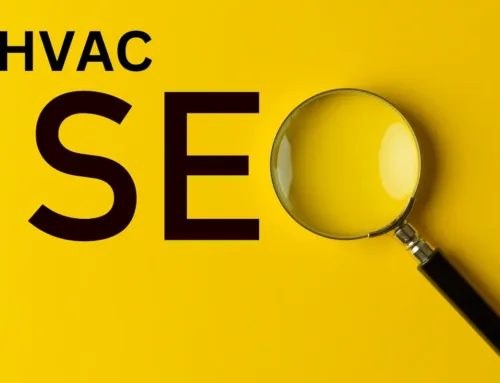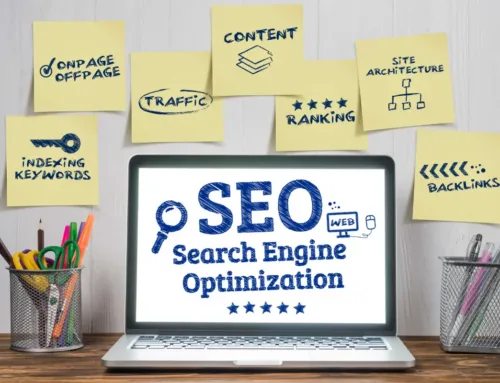It makes sense to implement SEO first and then take your marketing campaign social media, because the conversion rate of traffic generated by websites is 9% higher than social media traffic. To enhance search traffic very quickly, you must develop an SEO strategy with a proven record of success for a market that is ready to lap up your offering.
In addition, you must create content based on data and statistics obtained through research that provides some solutions to problems users face. You also have to promote the content to gain high visibility. All these might sound quite fundamental, which it is, but that is how SEO works.
But doing everything that you have read so far will not bear fruits if you are unable to cut through the myths that surround SEO. Lots of myths float across the SEO landscape with new myths added, and it is essential to identify these and stay away from it. The myths have waylaid marketers, who often fail to improve traffic and search rankings by believing them to be true.
Here are some myths that you must never take by their face value, as it could harm your SEO campaign. Find a reputable SEO company to help you bust the myths.
Myth #1: Meta Tags Are Not Important
Meta tags create the channel of communication between websites and search engines. The preview snippets that you see in search results are examples of using meta tags that include meta keyword phrases in addition to meta descriptions and the title tag.
While the title tag is a necessary page element, the meta descriptions and meta keywords and phrases are optional. If they are absent, Google will pull text from the content of the page for creating snippets. By providing the descriptions and keywords, you can influence the way the snippets are constructed.
Myth #2: XML Sitemap Boosts Search Ranking
People keep guessing about the ranking factors of Google as there is no authentic declaration about it. However, from experience and by doing some back linking, marketers have a fair idea about the possible ranking factors. These include optimizing local landing pages, having mobile-friendly websites, brand mentions, citations, social signals, etc. But nowhere is there any evidence that XML sitemaps influence search rankings.
XML sitemaps help improve crawlability by search spiders and speed up indexing. Having a site map allows Google to discover your content quickly, but that is all it does without affecting the ranking in any way. You definitely must have XML sitemap installed, but not for better ranking.
Myth #3: Hummingbird Has Rendered Keyword Targeting Irrelevant
The launch of Hummingbird brought into focus the contextual aspect of search terms by going beyond their literal meaning. Hummingbird aims to change the mindset of content creators who must now move away from keyword-oriented content to something that benefits the end-user. The idea behind Hummingbird is to understand the intent behind searches by looking at the context, which helps to understand what users really want. This approach does dilute the aspect of keyword targeting in content to some extent, but it will be wrong to consider it redundant. Instead, Hummingbird has made keyword research and targeting easier because the shift to search intent has eliminated the need for maintaining a specified keyword ratio.
Myth #4: Top Level Domains Earn Better Ranking
The domain name bears enough significance for search engines in understanding the geographical location of the search users. For example, if a website uses some country domain that is geo-targetable, like the UK, search engines immediately understand the website is trying to reach out to the audience of that specific country. Whereas, if a website from that same country uses a .com domain, search engines would assume that the intention is to attract a global audience. The conversions of .com domains are really much higher, but there is just no inkling about the choice of domain influencing search rankings. The only effect that the domain name has on content marketing is when it includes keywords, but it can be risky to try due to the fear of exact domain names attracting a penalty.
Myth #5: Including the Keyword in Anchor Text Is of No SEO Consequence
Optimizing anchor text with keywords is not bad as long as you are not overdoing it. Google Penguin is ever watchful to identify and penalize over-optimization efforts like using keyword-rich anchor text in content, and there is no doubt that use of too much keyword anchor text will have a negative impact on search rankings for the web page. It is best to avoid cross-linking with anchor text also. But this does not mean that keyword in anchor text has lost all its relevance.
You can still use keywords in the anchor text, but in a different way by diversifying anchor text by including your meta keyword phrases, brand and URL in it together with primary and secondary keywords and generic keywords.
Myth #6: Google Will Automatically Find Your Fresh Content for Indexing
Google search bots are scouring the web continuously in search of new content,vbut the question is whether you need to do something to make it happen or will it all happen on its own whenever you post fresh content? If you wait for it to occur on its own, there is no certainty about how much time it might take to draw the attention of Google for indexing. Instead, being proactive and attracting the attention of search spiders can hasten the process of crawling and indexing. And this is where you act smartly by installing an XML site map on the website that facilitates quick detection of fresh content and gets it indexed soon upon uploading it.
There is no way to guarantee fast search rankings. Having patience and the will to work hard and sincerely can provide the results, as long as you know how to differentiate between myth and reality.








